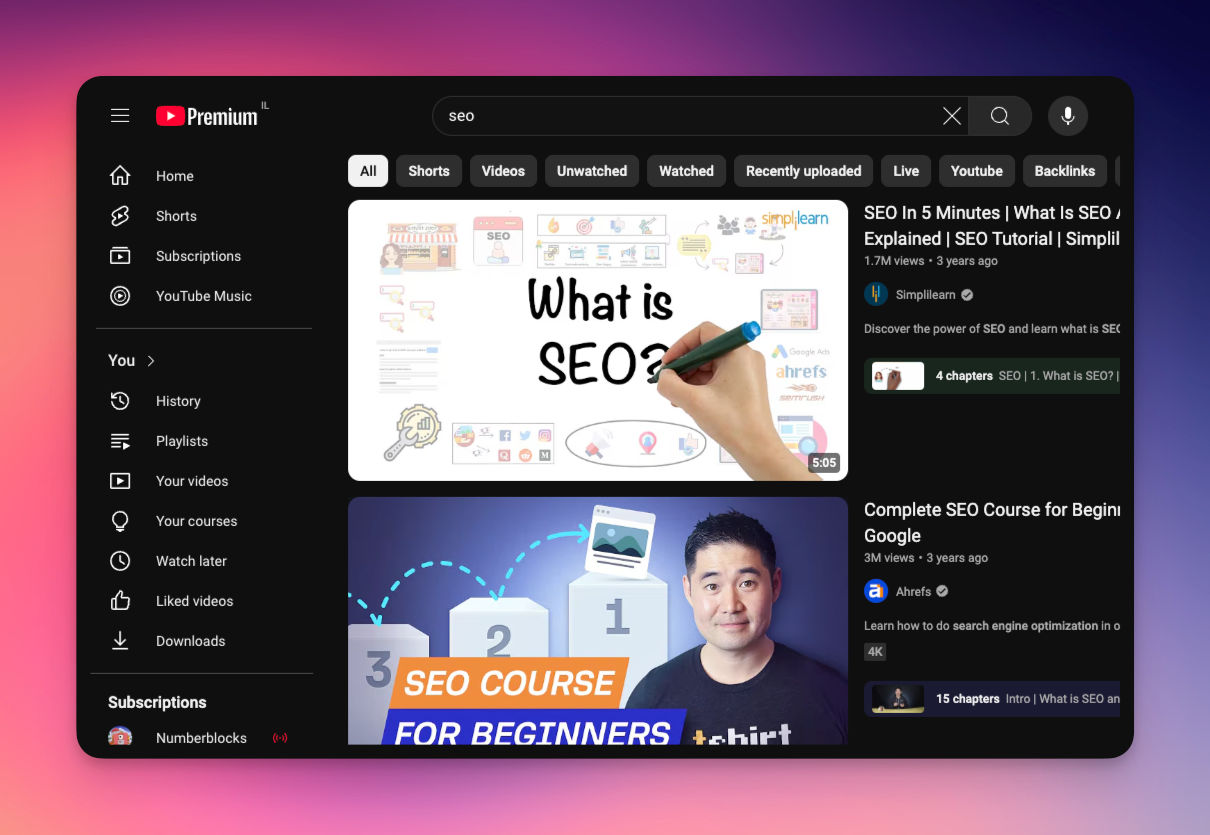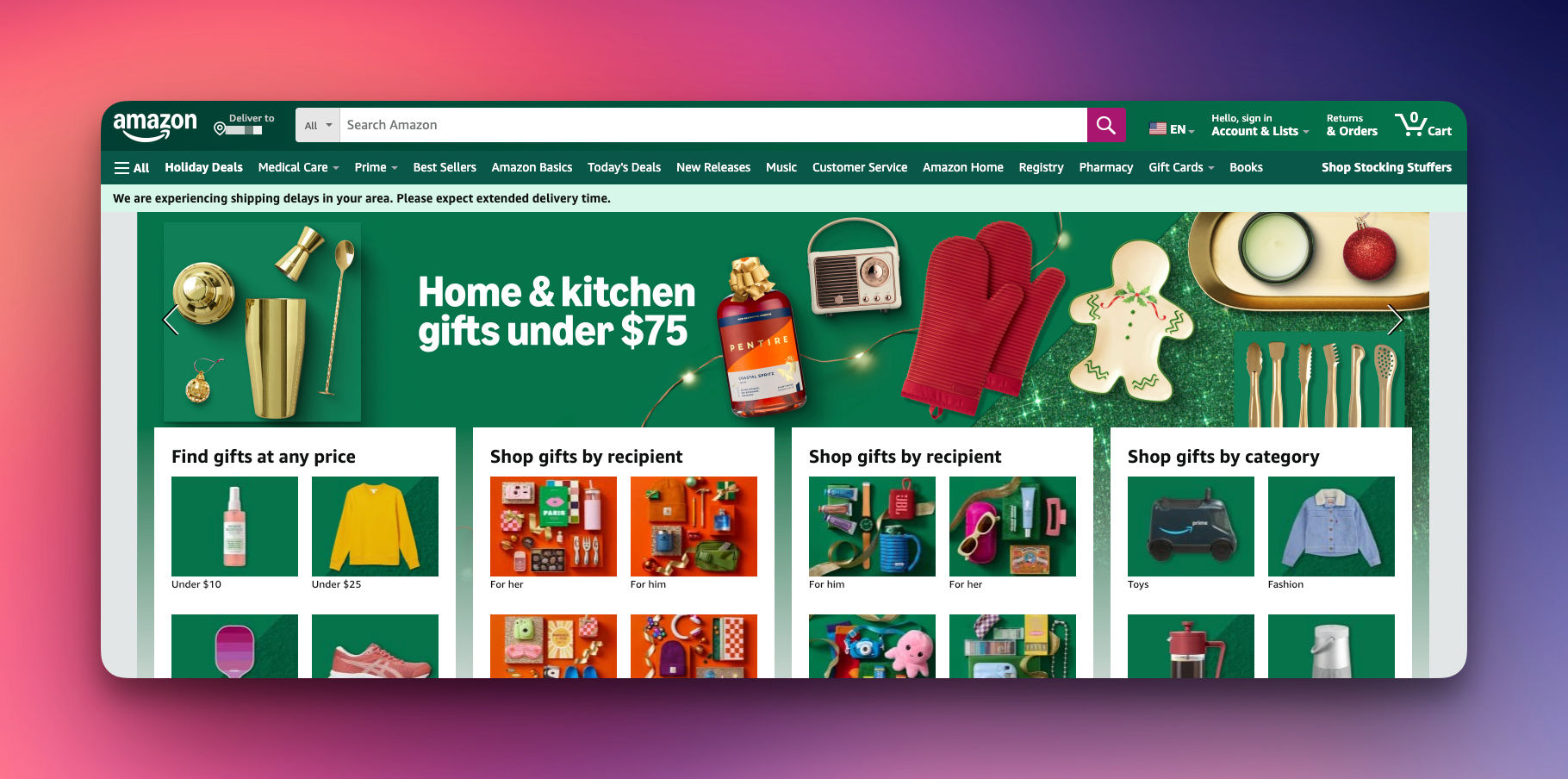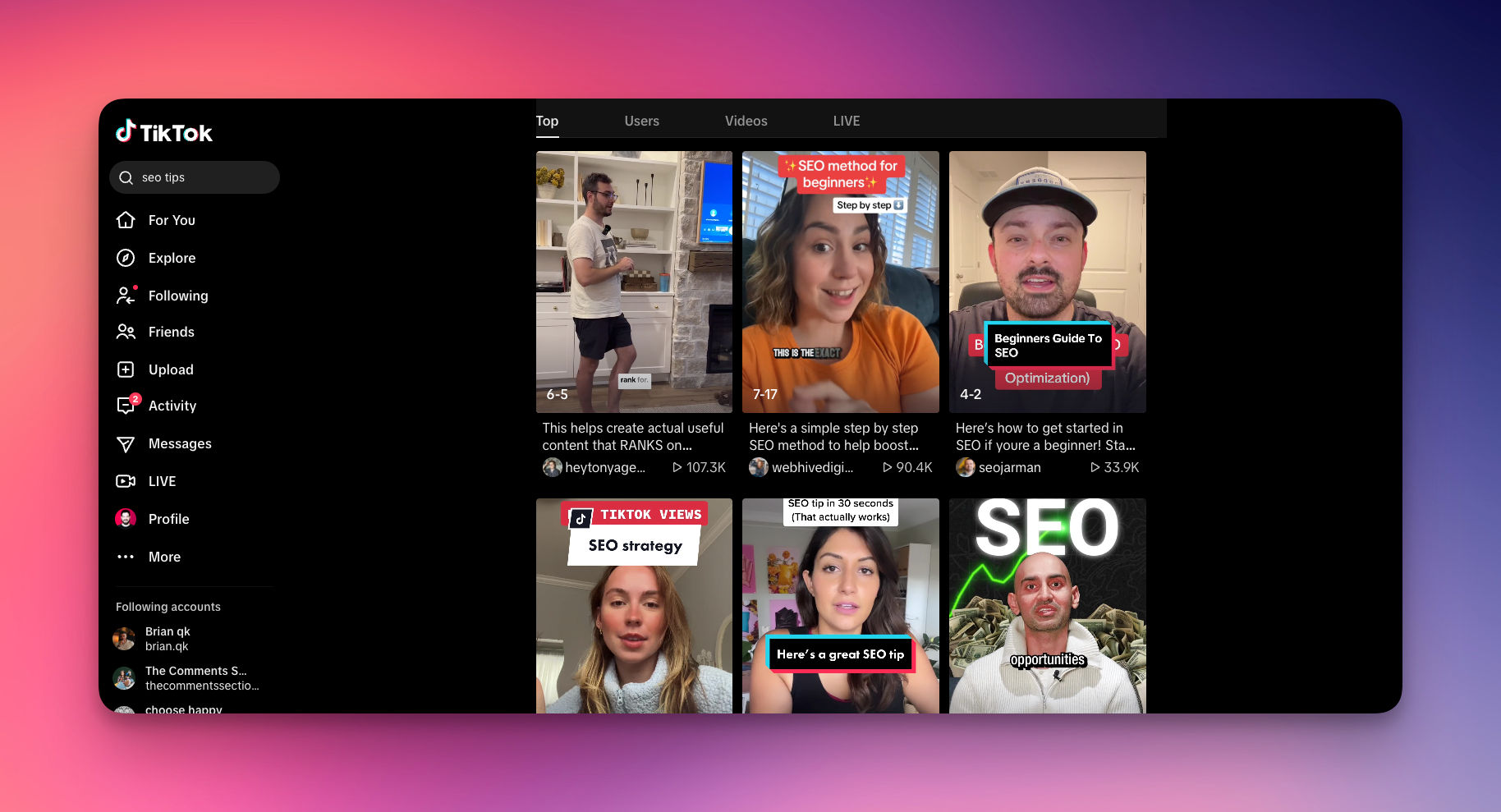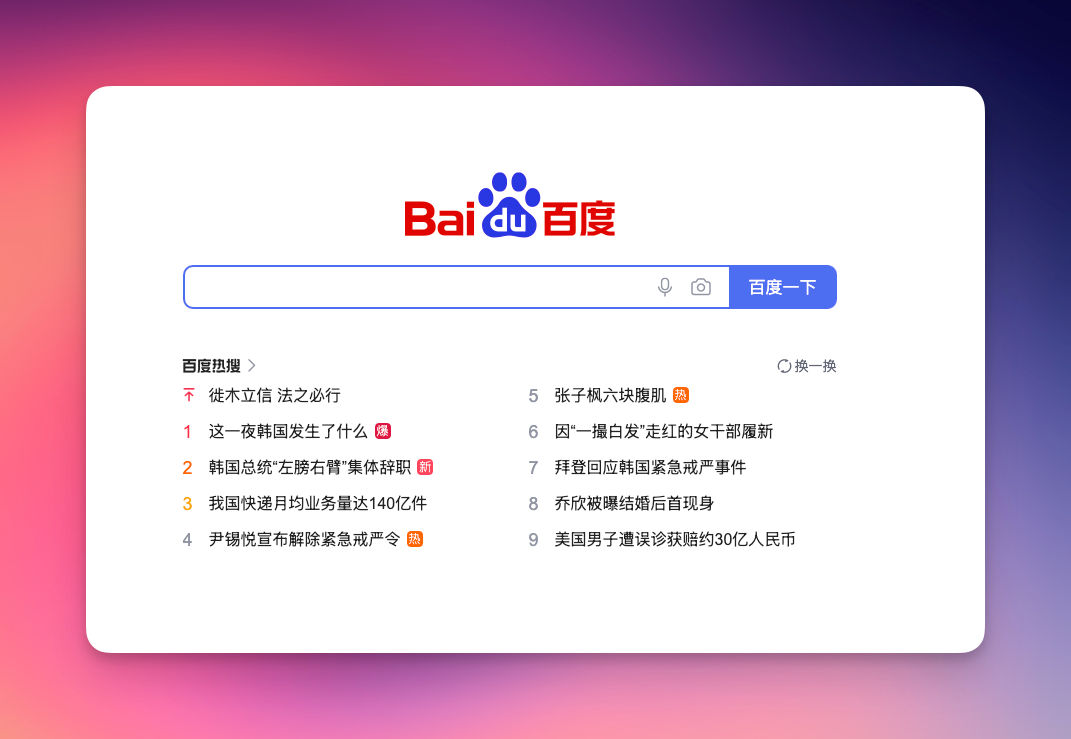
The Top 7 Search Engines Dominating the Internet in 2025
Search engines plays a important role in how we access information and navigate the online world. This blog post delves into the top 7 search engines that dominate the internet, exploring their unique features, advantages, and challenges. We'll cover giants like Google and YouTube, e-commerce powerhouse Amazon, and emerging players like TikTok. Whether you're a marketer, business owner, understanding these platforms is crucial for maximizing online visibility and staying ahead in the digital game.
1. Google: The Undisputed King of Search

When it comes to search engines, Google reigns supreme. Since its inception in 1998, this tech giant has revolutionized how we find information online. With its lightning-fast results, user-friendly interface, and vast index of web pages, Google has become synonymous with internet search. Its dominance is so pronounced that "to google" has become a verb in everyday language. But what makes Google so special, and are there any downsides to its reign? Let's dive into the advantages, disadvantages, and SEO strategies for this search engine powerhouse.
Advantages and Disadvantages
Google's dominance in the search engine world comes with its fair share of pros and cons. Let's dive into what makes Google so powerful and where it might fall short.
The Undeniable Advantages
Google's lightning-fast search results and vast index of web pages are hard to beat. Its algorithm is continuously improving, delivering increasingly relevant results. The integration with other Google services like Gmail, Maps, and Drive creates a seamless user experience. Plus, Google's powerful advertising platform, Google Ads, offers businesses unparalleled reach and targeting options.
The Potential Drawbacks
However, Google's dominance raises privacy concerns. The amount of data it collects on users is staggering, which some find unsettling. There's also the issue of potential bias in search results, whether algorithmic or manual. Small businesses may struggle to compete with larger corporations for top search rankings. Lastly, Google's frequent algorithm updates can be challenging for website owners to keep up with, potentially affecting their search visibility overnight.
SEO Strategies for Google
Ready to boost your website's visibility on Google? Let's dive into some killer SEO strategies that'll help you climb those search rankings and get noticed!
- Keyword research — Uncover the golden phrases your audience is searching for
- High-quality content — Create valuable, engaging content that keeps readers coming back for more
- On-page optimization — Fine-tune your titles, meta descriptions, and headers for maximum impact
- Mobile-friendliness — Ensure your site looks great and functions smoothly on all devices
- Page speed optimization — Speed up your site to keep both users and Google happy
- Backlink building — Earn high-quality links from reputable sources to boost your authority
- Schema markup — Implement structured data to help Google understand your content better
- User experience (UX) — Create a seamless, intuitive experience that keeps visitors engaged
Remember, SEO is a marathon, not a sprint. Stay consistent, keep learning, and watch your Google rankings soar!
2. YouTube: The Video Search Giant

When it comes to video content, YouTube reigns supreme as the second-largest search engine after Google. This Google-owned platform has revolutionized how we discover and consume video content. With over 2 billion logged-in monthly users, YouTube offers an unparalleled opportunity for content creators and businesses to reach a vast audience. But it's not just about uploading videos; understanding YouTube's search algorithm and optimizing your content is key to success on this platform. Let's dive into the benefits, limitations, and strategies for maximizing your visibility on YouTube.
Benefits and Limitations
YouTube isn't just for cat videos and music clips anymore - it's become a powerhouse search engine in its own right. Let's dive into the pros and cons of using YouTube as a search platform:
- Visual content galore — YouTube shines when it comes to visual explanations and tutorials
- Engagement central — Comments, likes, and shares create a vibrant community around content
- Monetization opportunities — Content creators can earn through ads and sponsorships
- Limited to video format — Not ideal for quick, text-based information retrieval
- Time-consuming — Watching videos can take longer than skimming text
- Potential for misinformation — Anyone can upload content, leading to possible inaccuracies
- Ads and distractions — Commercials and suggested videos can interrupt the search experience
While YouTube offers a unique, engaging way to consume information, it's important to consider these factors when using it as a search tool. Next, we'll explore how to make the most of YouTube's search capabilities.
Maximizing YouTube Visibility
Want to make your videos shine on YouTube? It's all about playing smart with the platform's algorithm. Here are some tried-and-true strategies to boost your visibility and get those views rolling in:
- Keyword-rich titles — Craft catchy titles that include relevant keywords to help viewers find your content
- Engaging thumbnails — Design eye-catching thumbnails that stand out in search results and suggested videos
- Descriptive tags — Use relevant tags to help YouTube understand and categorize your video content
- Detailed descriptions — Write informative descriptions with keywords, timestamps, and links to related content
- Consistent uploading — Maintain a regular posting schedule to keep your audience engaged and coming back for more
- Audience engagement — Encourage likes, comments, and subscriptions to boost your video's performance in the algorithm
- Collaborate and network — Partner with other creators to expand your reach and tap into new audiences
Remember, YouTube's algorithm loves videos that keep viewers watching, so focus on creating high-quality, engaging content that resonates with your target audience. With these tips in your toolkit, you'll be well on your way to YouTube stardom!
3. Amazon: The E-commerce Search Powerhouse

When it comes to online shopping, Amazon isn't just a marketplace – it's a search engine in its own right. Millions of shoppers start their product searches directly on Amazon, bypassing traditional search engines altogether. This e-commerce giant has revolutionized how we find and purchase products online, offering a vast catalog and sophisticated search algorithms. Let's dive into Amazon's strengths and weaknesses as a search engine, and explore strategies to boost your product visibility on this platform.
Strengths and Weaknesses
When it comes to searching for products online, Amazon has become a powerhouse. Let's dive into the strengths and weaknesses of using Amazon as a search platform:
- Vast product selection — Amazon offers an unparalleled range of products, making it a one-stop-shop for consumers.
- Customer reviews — The platform's robust review system helps buyers make informed decisions based on real user experiences.
- Personalized recommendations — Amazon's algorithm excels at suggesting relevant products based on your browsing and purchase history.
- Price comparison — It's easy to compare prices from multiple sellers, often leading to competitive deals.
- Limited to e-commerce — Unlike general search engines, Amazon's focus is solely on products, limiting its usefulness for other types of information.
- Sponsored content dominance — Paid listings often overshadow organic results, potentially skewing search outcomes.
- Brand bias — Amazon's own products and brands may receive preferential treatment in search results.
- Information overload — The sheer volume of products can sometimes make it challenging to find exactly what you're looking for.
Understanding these strengths and weaknesses can help both shoppers and sellers navigate Amazon's search ecosystem more effectively.
Boosting Product Visibility on Amazon
Want to stand out in the crowded Amazon marketplace? Here are some key strategies to boost your product visibility and climb those search rankings.
Optimize Your Product Listings
First things first, make sure your product listings are top-notch. Use relevant keywords in your title, bullet points, and product description. But don't just stuff keywords – make sure your content is informative and engaging. High-quality images and videos can also make a big difference in catching a shopper's eye.
Leverage Amazon's Advertising Tools
Amazon offers various advertising options to give your products a boost. Sponsored Products and Sponsored Brands can help you appear at the top of search results and on competitor product pages. It's a pay-to-play game, but with the right strategy, it can significantly increase your visibility.
Encourage Customer Reviews
Reviews are gold on Amazon. They not only influence buying decisions but also impact your search rankings. Encourage satisfied customers to leave reviews, and always respond professionally to both positive and negative feedback. Remember, it's about building trust with potential buyers and with Amazon's algorithm.
4. Microsoft Bing: Google's Main Competitor

While Google reigns supreme in the search engine world, Microsoft Bing stands as its most formidable competitor. Launched in 2009, Bing has carved out its own niche in the search market, offering a unique set of features and capabilities. With its visually appealing interface and integration with Microsoft products, Bing provides users with an alternative search experience. Let's explore the advantages and drawbacks of using Bing, as well as some effective SEO strategies tailored for this platform.
Advantages and Drawbacks
Microsoft Bing, while often overshadowed by Google, has its own set of unique features that make it a worthy contender in the search engine arena. Let's explore some of the key advantages and drawbacks of using Bing for your web searches:
- Visual Search — Bing's image search capabilities are often considered superior to Google's, offering more detailed and interactive results.
- Rewards Program — Unlike Google, Bing offers a rewards program that allows users to earn points for searches, which can be redeemed for gift cards or donations.
- Integration with Microsoft Products — Bing seamlessly integrates with other Microsoft products like Office 365, providing a more cohesive experience for users in the Microsoft ecosystem.
- Less Competitive Ad Space — Advertisers often find Bing's ad platform less crowded and potentially more cost-effective than Google Ads.
- Privacy Features — Bing has been making strides in offering more privacy-focused search options, appealing to users concerned about data collection.
- Smaller User Base — While this can be an advantage for advertisers, it also means that Bing has less data to refine its search algorithms compared to Google.
- Less Frequent Updates — Bing's algorithm updates are typically less frequent than Google's, which can be both a blessing and a curse for SEO professionals.
Bing SEO Best Practices
While Google may be the top dog in search, don't overlook the potential of Microsoft Bing. To help you make the most of this alternative search engine, here are some Bing SEO best practices to keep in mind:
- Keyword optimization — Bing places a higher emphasis on exact-match keywords, so be sure to include your target phrases in titles, headings, and content
- Meta descriptions — Craft compelling meta descriptions as Bing tends to display them more often in search results
- Social signals — Bing considers social media engagement, so maintain active profiles and encourage social sharing
- Backlink quality — Focus on acquiring high-quality, authoritative backlinks as Bing values them highly
- Multimedia content — Incorporate images, videos, and other media types to improve your content's appeal on Bing
- Local SEO — Optimize for local searches by claiming and verifying your Bing Places for Business listing
- Website age — Bing tends to favor older, established websites, so patience and consistent quality content are key
By implementing these Bing-specific SEO strategies, you can improve your visibility on this platform and tap into its substantial user base. Remember, diversifying your search engine presence can lead to a broader reach and more robust online presence.
5. TikTok: The Rising Star in Social Search

Move over, traditional search engines! TikTok is making waves as the go-to platform for social search, especially among younger users. This video-sharing app has evolved from a dance challenge hub to a powerful search tool, offering a unique blend of entertainment and information. With its algorithm-driven content discovery and user-generated videos, TikTok is reshaping how we find and consume information online. Let's dive into the advantages and challenges of TikTok as a search engine, and explore ways to boost your visibility on this trending platform.
Advantages and Challenges
TikTok's rise as a search platform brings unique advantages and challenges. Its visual-first approach offers users quick, engaging results, perfect for how-to queries and product discovery. The platform's algorithm excels at understanding user preferences, delivering highly personalized content. However, TikTok faces challenges in providing comprehensive information for complex topics and maintaining content accuracy. As a relatively new search player, it's still building trust among users accustomed to traditional search engines. Despite these hurdles, TikTok's innovative approach to search is reshaping how we find and consume information online.
Enhancing TikTok Discoverability
Want to make your TikTok content more discoverable? Here are some key strategies to boost your visibility on this rapidly growing platform:
- Hashtag optimization — Use a mix of trending and niche-specific hashtags to increase your content's reach
- Keyword-rich captions — Incorporate relevant keywords in your video captions to improve searchability
- Consistent posting schedule — Maintain a regular posting rhythm to keep your audience engaged and increase your chances of appearing in the "For You" page
- Engage with trending sounds — Utilize popular audio clips and music to ride the wave of trending content
- Collaborate with other creators — Partner up with fellow TikTokers to expand your reach and tap into new audiences
- Create series content — Develop multi-part video series to encourage viewers to follow your account for more
- Optimize your profile — Craft a compelling bio with relevant keywords and a clear call-to-action
By implementing these strategies, you'll be well on your way to increasing your TikTok discoverability and growing your audience on this dynamic platform.
6. Baidu: China's Search Engine Titan

When it comes to search engines in China, Baidu reigns supreme. As the most popular search engine in the world's most populous country, Baidu holds a unique position in the global search landscape. With its deep understanding of Chinese language and culture, Baidu offers features tailored specifically for the Chinese market. However, its dominance in China comes with both advantages and challenges for businesses looking to tap into this massive market. Let's explore what makes Baidu tick and how to navigate its ecosystem.
Strengths and Limitations
Baidu, China's search engine giant, comes with its own set of advantages and challenges. Let's dive into what makes Baidu tick and where it might fall short:
- Dominance in China — Baidu reigns supreme in the Chinese market, offering unparalleled reach for businesses targeting this audience
- Local understanding — Its algorithms are finely tuned to Chinese language nuances and cultural context
- Integrated services — Baidu offers a suite of connected platforms, including maps, forums, and cloud storage
- Mobile optimization — With China's mobile-first approach, Baidu excels in mobile search capabilities
- Limited global reach — Outside of China, Baidu's influence wanes significantly
- Censorship concerns — As with all Chinese platforms, content is subject to government regulations and censorship
- Complex optimization — SEO for Baidu can be challenging for non-Chinese businesses due to language and cultural barriers
- Advertising restrictions — Strict rules govern advertising on Baidu, which can be a hurdle for international companies
Understanding these strengths and limitations is crucial for any business looking to tap into the Chinese market through Baidu.
Baidu SEO Strategies
Optimizing for Baidu requires a unique approach tailored to the Chinese market. Here are some key strategies to boost your visibility on China's leading search engine:
- Hosted in China — Ensure your website is hosted on servers within mainland China for faster loading times and better rankings
- ICP License — Obtain an Internet Content Provider (ICP) license, which is mandatory for websites operating in China
- Chinese Language — Use Simplified Chinese for your content, as it's the preferred language for Baidu's algorithms
- Baidu Webmaster Tools — Utilize Baidu's webmaster tools to submit your sitemap and monitor your site's performance
- Mobile Optimization — Prioritize mobile-friendly design, as a significant portion of Chinese internet users access the web via mobile devices
- Local Link Building — Focus on acquiring backlinks from reputable Chinese websites to boost your domain authority
- Content Format — Emphasize text-based content, as Baidu's crawlers have limitations in interpreting certain multimedia formats
By implementing these Baidu-specific SEO strategies, you can significantly improve your chances of ranking well in China's dominant search engine and reaching your target audience effectively.
7. Yandex: Russia's Search Engine Leader

When it comes to search in Russia, Yandex reigns supreme. This homegrown search engine has successfully carved out its niche, dominating the Russian market with its localized approach and deep understanding of the Russian language and culture. Yandex offers a suite of services beyond search, including maps, email, and a popular taxi service. For businesses targeting the Russian market, understanding Yandex's unique algorithms and user preferences is crucial for online success. Let's dive into the advantages, drawbacks, and SEO best practices for this Eastern European search giant.
Advantages and Drawbacks
When it comes to searching the web in Russian-speaking regions, Yandex offers a unique set of advantages and drawbacks. Let's explore what makes this search engine stand out and where it might fall short:
- Localized results — Yandex excels at providing highly relevant search results for Russian-speaking users, understanding local context and nuances better than its Western counterparts.
- Integrated services — The search engine offers a comprehensive ecosystem of services, including email, maps, and cloud storage, providing a seamless user experience.
- Advanced language processing — Yandex's natural language processing capabilities are particularly strong for Russian and other Slavic languages, offering more accurate search results.
- Limited global reach — While dominant in Russia, Yandex's influence outside Russian-speaking countries is minimal, limiting its usefulness for international searches.
- Potential content restrictions — As a Russia-based company, Yandex may be subject to government regulations that could affect search results and user privacy.
- Smaller index size — Compared to global giants like Google, Yandex's index of web pages is smaller, which may result in less comprehensive search results for some queries.
Understanding these pros and cons can help users and businesses make informed decisions about using Yandex for their search needs in Russian-speaking markets.
Yandex SEO Best Practices
Optimizing for Yandex requires a tailored approach that considers the unique aspects of this Russian search engine. Here are some best practices to improve your visibility on Yandex:
Focus on High-Quality, Original Content
Yandex places a strong emphasis on original, high-quality content. Create informative, well-researched articles that cater to your Russian-speaking audience. Avoid duplicate content and ensure your website offers unique value to visitors.
Optimize for Russian Language
Yandex is primarily used by Russian speakers, so it's crucial to optimize your content for the Russian language. Use proper Russian grammar, spelling, and syntax. Consider hiring native Russian speakers for content creation and translation to ensure accuracy and natural language use.
Leverage Yandex-Specific Tools
Take advantage of Yandex's suite of webmaster tools, including Yandex.Webmaster and Yandex.Metrica. These tools provide valuable insights into your website's performance and help you identify areas for improvement. Use them to submit your sitemap, monitor crawl errors, and track user behavior on your site.
Wrapping Up: The Diverse Landscape of Search Engines
As we've explored the top 7 search engines dominating the internet, it's clear that the search landscape is diverse and ever-evolving. Here are the key takeaways:
- Variety of options — From Google's all-encompassing search to specialized platforms like YouTube and Amazon, users have a wealth of choices.
- Tailored strategies — Each search engine requires unique SEO approaches to maximize visibility and reach.
- Global players — While some search engines dominate globally, others like Baidu and Yandex are powerhouses in specific regions.
- Evolving technologies — The rise of video-based platforms like TikTok shows how search is adapting to changing user preferences.
- Constant innovation — AI and machine learning are reshaping how search engines operate and deliver results.
Remember, the world of search engines is dynamic and exciting. Stay curious, keep learning, and don't be afraid to explore beyond the familiar.